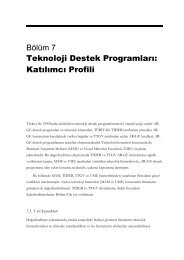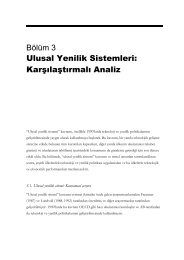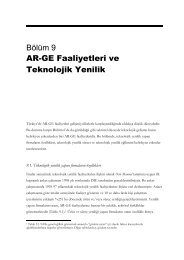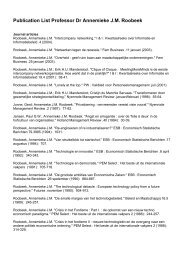The Australian Government's Innovation Report
The Australian Government's Innovation Report
The Australian Government's Innovation Report
You also want an ePaper? Increase the reach of your titles
YUMPU automatically turns print PDFs into web optimized ePapers that Google loves.
Sustaining funding for government research agencies<br />
<strong>Australian</strong> Government Antarctic Division<br />
<strong>The</strong> <strong>Australian</strong> Government Antarctic Division (AGAD) is part of the Department of the Environment and<br />
Heritage. Its role is to lead Australia’s Antarctic programme, conduct and support scientific research in<br />
Antarctica and the Southern Ocean, and to administer the <strong>Australian</strong> Antarctic Territory and the Territory of<br />
Heard Island and MacDonald Islands. In particular, AGAD manages <strong>Australian</strong> government activity in<br />
Antarctica and the sub-Antarctic, provides transport and logistic support, maintains permanent <strong>Australian</strong><br />
research stations, and conducts and manages scientific research programmes on land and at sea.<br />
AGAD supports about 160 scientists in Antarctica and the Southern Ocean each year. Of these, about 40% are<br />
employed by AGAD while the remainder work for <strong>Australian</strong> and overseas universities and research institutions.<br />
Studies are conducted in the four priority programmes of ice ocean atmosphere and climate, Southern Ocean<br />
ecosystems, adaptation to environmental change and impacts of human activities in Antarctica.<br />
<strong>The</strong>re is also a strong emphasis on climate science (jointly with the Cooperative Research Centre for Antarctic<br />
Climate and Ecosystems) and quantitative marine biology to support Australia’s positions in the Commission<br />
for the Conservation of Antarctic Marine Living Resources and the International Whaling Commission. Scientific<br />
data contributes to improved understanding about new generation climate change models, sea level rise estimates,<br />
sustainable fisheries, Australia’s biodiversity, environmental protection and space weather. Research is also<br />
conducted in human biology and medicine, space and atmospheric sciences, astronomy, and geosciences.<br />
In 2005, Antarctic science supported by AGAD resulted in 327 publications of which 137 were in peer reviewed<br />
publications and 36 contributed to supporting Australia’s position in the Commission for the Conservation<br />
of Antarctic Marine Living Resources. Ninety-two chief investigators conducted 122 science projects during<br />
the year. <strong>Australian</strong> Antarctic Science Grants, available to projects led by researchers from <strong>Australian</strong> universities<br />
or state institutions, were awarded to 47 of these projects.<br />
A total of 162 scientists travelled to Antarctica and the Southern Ocean to undertake research. Of these,<br />
96 were employed by universities and research institutions in Australia and overseas and 66 were scientists<br />
employed by AGAD. <strong>The</strong> <strong>Australian</strong> Antarctic programme also supported 131 students including 86 PhD,<br />
13 Masters of Science, 24 Honours and eight undergraduate students. AGAD collaborates extensively with other<br />
institutions, both within Australia and overseas, and throughout the year, there were collaborations with<br />
176 institutions in 28 different countries.<br />
For 2006-07, AGAD and other contributors to Australia’s Antarctic programme will undertake field work on<br />
the Antarctic continent and sub-Antarctic at Macquarie Island. Activities will also include a marine science<br />
voyage to the sub-Antarctic zone to characterise key components of Southern Ocean planktonic ecosystems,<br />
their influence on carbon dioxide exchange with the atmosphere and the deep ocean, and their sensitivity to<br />
past and future global change including climate warming, ocean stratification, and ocean acidification from<br />
anthropogenic carbon dioxide emissions.<br />
More information about AGAD and its programmes and activities can be found at: www.aad.gov.au<br />
22 Backing Australia’s Ability




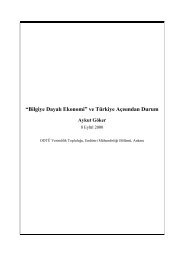
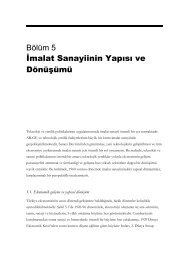
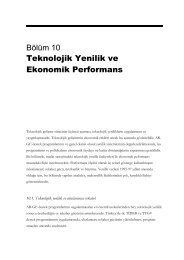

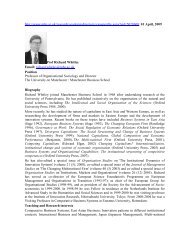

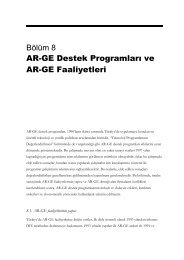
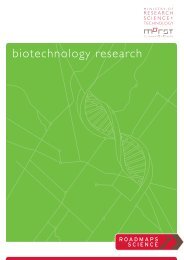
![[Tam] Uygula[ya] - Bilim, Teknoloji ve Ä°novasyon Politikaları TartıÅma ...](https://img.yumpu.com/36820041/1/184x260/tam-uygulaya-bilim-teknoloji-ve-anovasyon-politikalara-tartaama-.jpg?quality=85)
